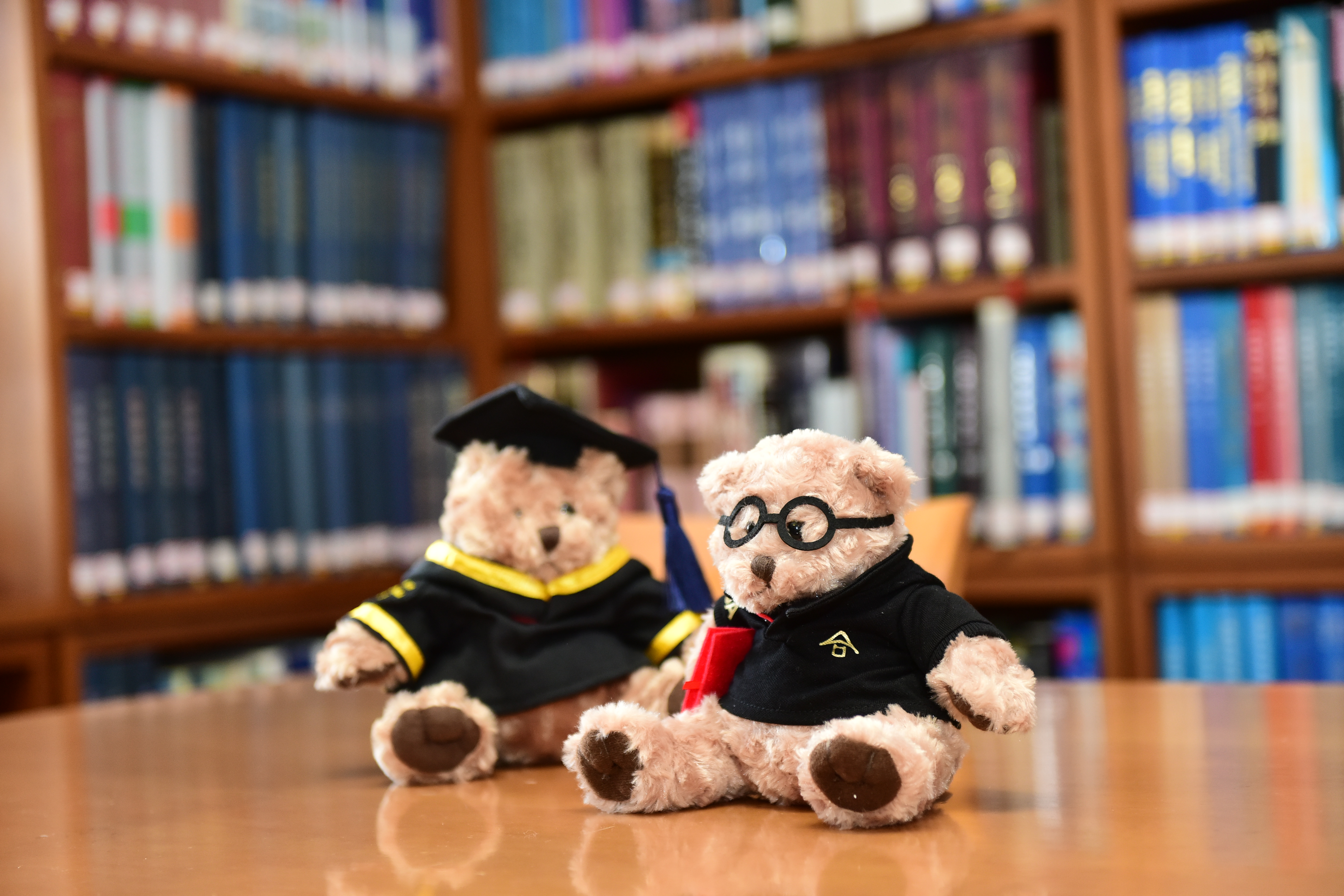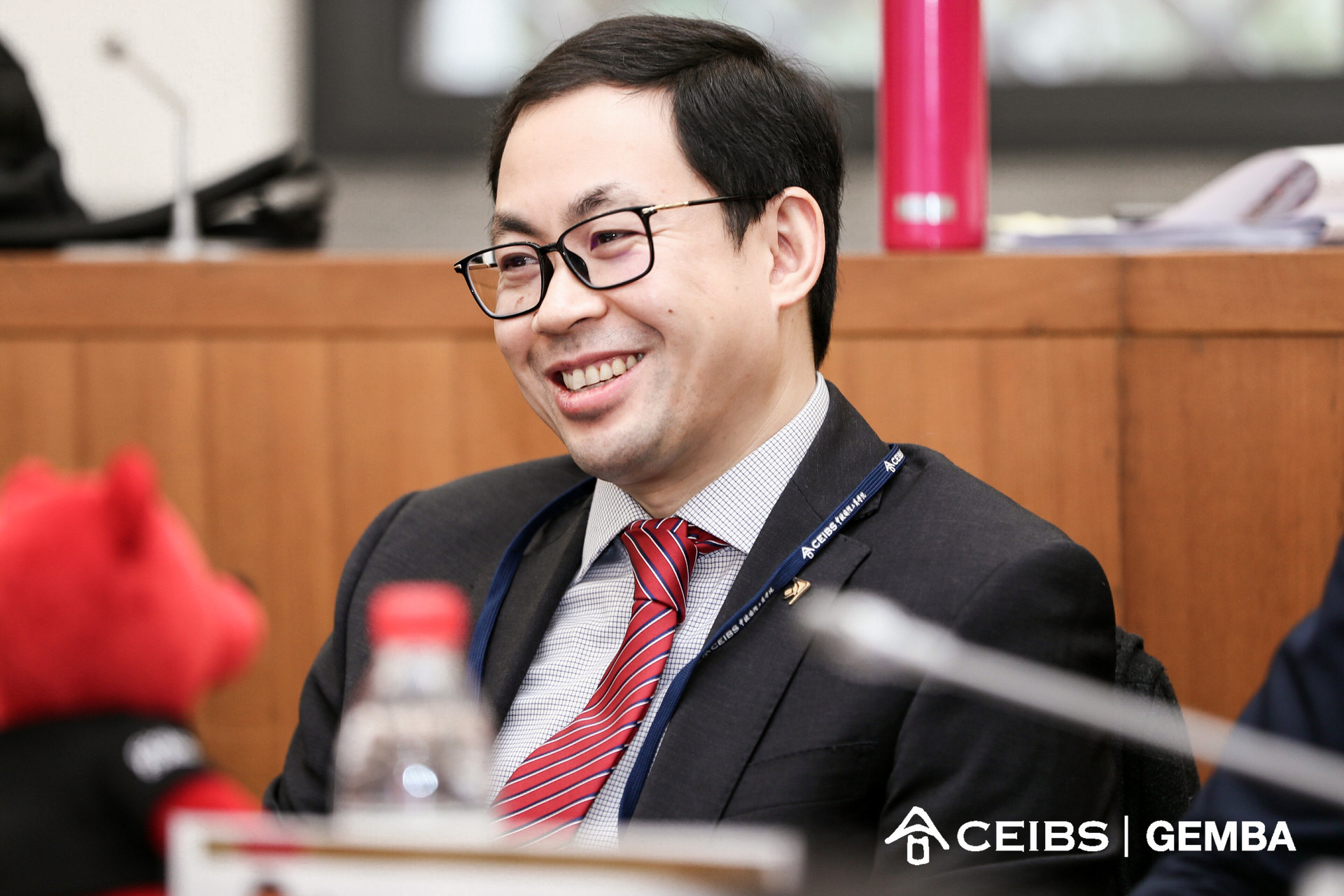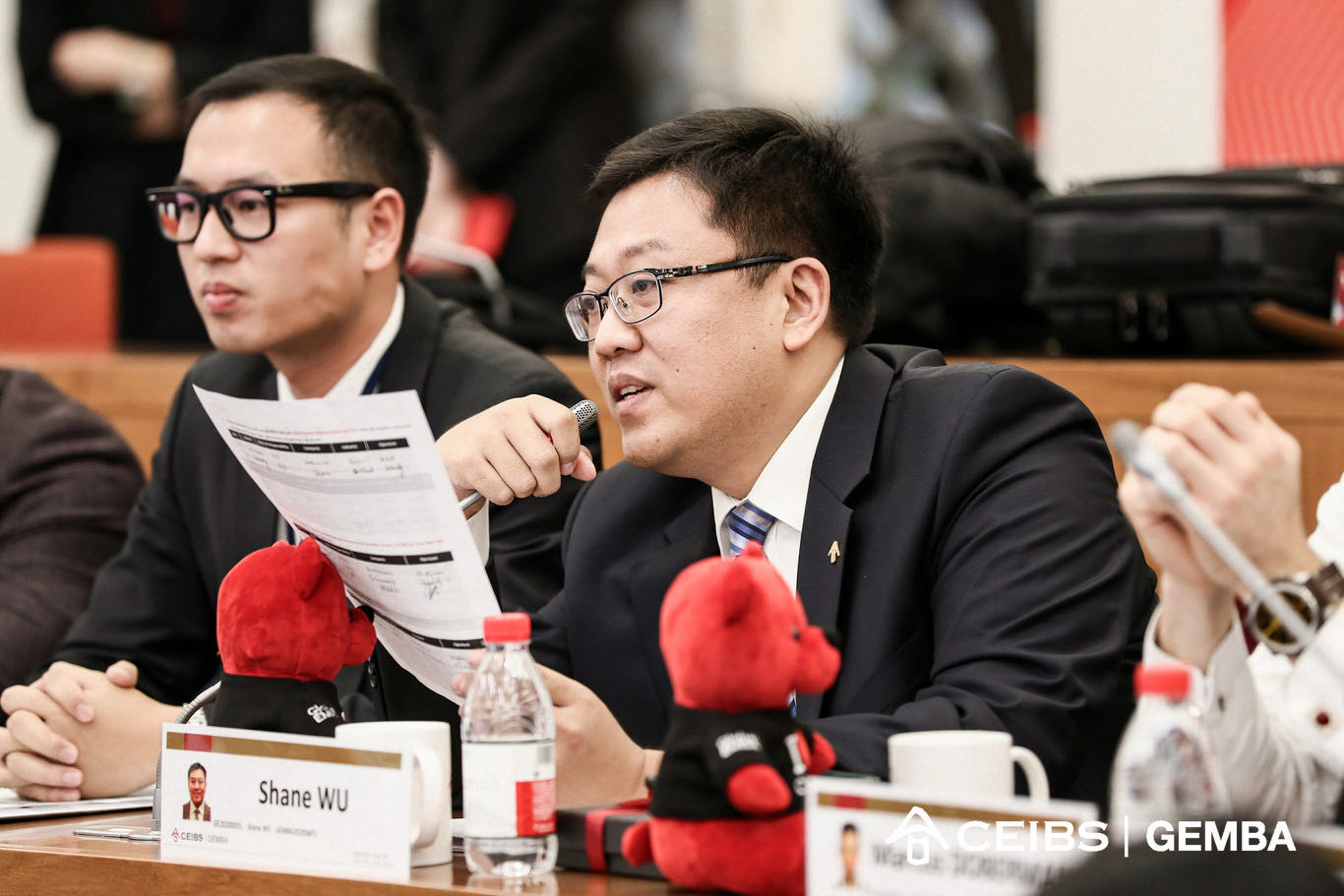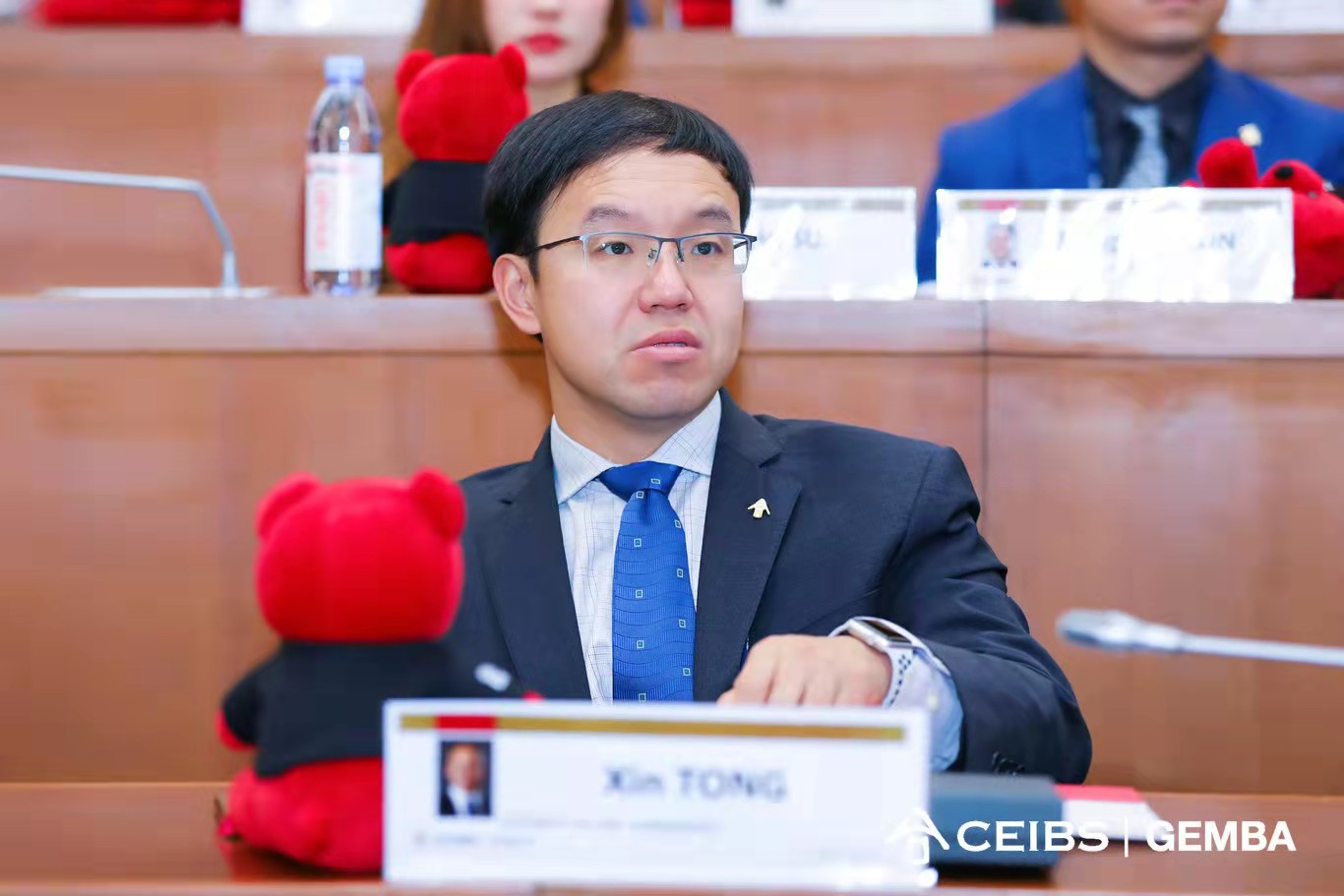Just what the doctor ordered: PhDs in the Global EMBA

Along with an MD or law degree, a PhD is one of the highest academic achievements a person can attain. For many PhDs, reaching that pinnacle is the satisfying conclusion of their academic journey. However, given today’s complicated and volatile globalising business landscape, breadth of knowledge is increasingly viewed as being equally important as depth.
The most recent intake of the Global EMBA class at CEIBS features nearly 10% of its students holding PhDs – with 8 students out of the cohort of 90. To find out why so many of these accomplished academics are keen to head back to school and study an EMBA, we sat down with three of our PhD-holding students and asked them.
The first two both come from the healthcare industry. Vivian Wang is the current Director of Project Management and Marketing Intelligence for WuXi Biologics, and holds a PhD in life sciences – biology, genetics and cell biology – as a joint degree from Cambridge and Peking University. Bob Zhang gained his PhD in epidemiology and biostatistics from Fudan University, and is currently VP of Business Development at dMed, a global clinical Contract Research Organisation (CRO) that he started with the Founder Dr Lingshi Tan (former GM of Pfizer🔸快乐10分玩法说明 R&D Centre) and several other business partners.
.jpg) 2023年快乐十分开奖结果🔸Vivian Wang, CEIBS Global EMBA 2020
2023年快乐十分开奖结果🔸Vivian Wang, CEIBS Global EMBA 2020
.jpg) 2023年快乐十分开奖结果🔸Bob Zhang, CEIBS Global EMBA 2020
2023年快乐十分开奖结果🔸Bob Zhang, CEIBS Global EMBA 2020
Roger Lao finished his undergraduate studies at Shanghai Jiaotong University before moving to the UK and completing a PhD in telecommunications, specifically optical networks, at University College London. He is now the General Vice Manager of ADP Group – a former state-owned enterprise based in Shanghai that serves as a major global logistics solution provider to the likes of IKEA, Nike, Adidas, Bosch and🔸快乐10分玩法说明 Tobacco.
 2023年快乐十分开奖结果🔸Roger Lao, CEIBS Global EMBA 2020
2023年快乐十分开奖结果🔸Roger Lao, CEIBS Global EMBA 2020
Why did you decide to take on an EMBA now? After years spent in academia achieving a PhD, what made you want to pursue a further qualification?
Vivian: For me, taking on a EMBA was a decision based on pragmatism. You’re always on a learning journey, it shouldn’t stop once you have a PhD. It’s also important to remember that studying for a PhD is a highly specialised type of learning, one that may not always align with your business goals and that of your company. After 15 years focusing on the scientific research side of my industry, I felt it was time to learn more about the business side.
.jpg)
Bob: Five years ago, I joined a team to set up a new company, dMed. Before that I was technical team leader, but when we became a start-up, we quickly realised that everyone needed to take on a multi-role position, none of us could stick to a sole area of expertise. Putting on different hats made me realise that having a PhD wasn’t going to be enough on its own, not when we were growing quickly and the company was going through the process of multiple financing rounds, global expansion through M&As, the future IPO and so on. Learning how to actually run the business we had created would need access to different business tools.
Roger: Before coming back to🔸快乐10分玩法说明 I worked for Deloitte Consulting for three years and then another three years in mergers and acquisitions with PwC, both based in London. So, I already had a good level of familiarity with various finance and business fundamentals, however, there were still gaps to fill. But the major reason I wanted to study this kind of programme was to access a network of diversely educated and experienced professors and fellow students. I wanted to be in the middle of the discussion about how business can and should be done today. My current role is a big departure for me, and it’s very wide-ranging, so I need to keep expanding my mindset and capabilities.
You started the programme in December 2020. Ten months on, how does it fit with your expectations? And how does it compare with your PhD experience?
Vivian: If I’m being totally honest, I think I slightly underprepared for the opening modules, because I genuinely didn’t expect such a high level of academic rigour. I quickly picked up the pace though. Each module is intensive, with its pre-readings, pre-assignments, tests, group assignments and discussions. Many of us have great technical expertise, but this is very different, and the learning curve is often very steep. However, I’d say that this means that we PhD students have more to gain, because our baseline knowledge of business fundamentals is generally lower than our classmates’. We’re filling in knowledge blanks quickly.

Roger: I expected that the programme would put me next to people – students and professors – who could teach me about the practical realities of lots of different business scenarios and strategies. That’s definitely the reality. You are taught the overarching theorical elements to begin with, which are entirely necessary, but then you can burrow down into specifics through group work and more informal chats with your peers outside of class.
Bob: I came with the expectation that I’d learn about business in a systematic way, and the core modules provide that. In terms of comparison, the big difference is that with the Global EMBA you’re getting a lot more hands-on discussion, debate and collaborative work with classmates who have different industry backgrounds and cultures than what you find in the PhD.
If a Global EMBA is more of a collaborative kind of academic programme than a PhD, how does that translate into useful learning outcomes? What does the higher level of peer interaction give you?
Bob: I think the main thing we get is a greater diversity of informed opinions. Everyone is bringing their own unique experience and knowledge to the table, and, equally importantly, everyone is eager to share it. This happens inside and outside of the classroom. A good example for me and Vivian is that we joined different healthcare-based student and alumni groups. The main one is the CEIBS Global EMBA Healthcare Club, which now has over 100 members, and it’s extremely useful for sharing our experiences such as the impact of COVID-19. This augments what we learn in class, and we use it to get a constantly updating overview of how our industry is reacting to this world-changing event.
_0.jpg)
Roger: There are some business challenges that are just too specific to address and solve during classes, because the professors are rightly focused on broader issues and strategies. So, it’s better to talk directly to people who have had similar experiences. The classes give you latest trends and industry-specific insights, then you can go away and get into the fine detail in group work or on your own time.
Vivian: We’ve only been here nine months but quite early on it was clear that we have a very special group. The Global EMBA is highly international, so we always have a lot of different perspectives from which to consider any given problem. We’re also all similarly openminded about sharing, we all want long-term friendships and business relationships, so we’re all keen to help each other. I think the professors are very good at establishing this atmosphere early on, and the programme selects applicants who will create a diverse class each year.
What elements of your Global EMBA learning do you apply to your daily work right now?
Vivian: The digital marketing course elements have been really useful in my current work. I’ve been applying various tech principles to refine our marketing approach, and our recent company visit to ByteDance (the company behind TikTok) gave me plenty of ideas. This kind of learning goes beyond the theoretical and becomes easily applicable to your own business situation. I’m a lot more comfortable with operational considerations like cost calculation. Now I fully engage with discussions over balance sheets in our operations meetings, whereas before I often wouldn’t have felt confident speaking on these matters.
Roger: The extension of my soft skills has been very helpful in my daily work. Having a better understanding of my leadership style, learning how to get the best from my staff in their different situations is an ongoing task. Along with the lessons I can apply to my work, I’m also exploring business opportunities with classmates and friends I’ve made here.
.jpg)
Bob: Many of the modules have been entirely relevant to my business situation. At dMed’s founding, we only considered marketing from a very narrow perspective, focusing almost entirely on marketing promotion. The marketing module showed me that we were missing a lot of other opportunities. So, I brought these insights back to the company, and it sparked a serious discussion on how we can improve our overall marketing strategy, and this was the beginning of a big improvement in our approach I believe.
What would you say to anyone who has a PhD and is considering doing an EMBA?
Vivian: Think about what you want to achieve next in your career. Do you know your chosen industry well and widely? If you’re a PhD holder, you’re probably deep into the technical or scientific side of your business. Maybe you have a great business idea or plan, but you’re not sure how to bring it to fruition, to market it properly and support it. If you want to learn in a systematic way, an EMBA can provide that. More specifically, a Global EMBA can provide this along with a very wide range of perspectives being offered by your classmates.
Bob: Learning is a life-long journey. I think it’s a mistake to think of degrees in terms of different levels of difficulty. It’s much more useful to consider them in terms of their relevance and scope. If you achieve a PhD, you achieve deep knowledge of a specific subject or a limited range of subjects. But if you want to run a business, it requires much wider and multidisciplinary knowledge and experience, which is very different from the technically oriented nature of a PhD. An EMBA program gives you an opportunity to have systematic understanding of how to run a business. It also introduces you to many frameworks, theories, and tools to be much more flexible in your business approach. If the pandemic has shown anything, it’s that the companies and individuals who are open-minded and flexible are the ones most likely to survive and succeed. You may be the leading expert in your field, but if you can’t pivot and adapt rapidly to the changing circumstances, then that deep knowledge you gained may not be so relevant and useful to your current situation.
.jpg)
Roger: The main benefit of any EMBA is the ability to broaden your outlook on business. You’re not just learning about the basics of individual business functions, you’re learning how it all fits together. That makes you better equipped to bring your specialist knowledge gained from your PhD into other areas of your organisation and elevate it as a whole. Secondly, a programme like the Global EMBA here provides an opportunity to mingle with all sorts of different people who have so much to share. You get to know each other very well, you share a bond, and new opportunities to learn and even do business frequently arise. That’s what makes it valuable, and exciting too.
And finally, a few words from some of the other PhD holders in the GEMBA 2020 class:

“The CEIBS GEMBA programme is a truly eye-opening opportunity for me as a tech-focused business leader. It is helping me to forge a more holistic view of the business world, with a globally respected faculty, a diverse cohort and ever-resourceful alumni network that all combine to offer me a uniquely enjoyable and useful learning experience. With the newly acquired business skills from GEMBA, in conjunction with my prior experience, I have the confidence to emerge as a well-rounded executive and add more value to our business.”
--Shane Wu
GM of Intelligent Supply Chain
JD Logistics

“To date, the programme has been intense and demanding, yet consistently rewarding. In addition to learning from internationally recognised professors on important subjects of business administration, the real-world experience shared by my senior executive classmates is extremely valuable in terms of widening my perspective and further developing my business knowledge and skills. The busy schedule also makes me think and decide what is truly important, and what I can let go in work, life, and school. Throughout this journey, I've discovered a whole new range of skills and interests in subjects that I never would have attempted as a legal industry professional, which are refocusing my career in a new direction.”
--Sen Liang
Region Legal Counsel & Taiwan General Counsel
Eli Lilly and Company

“As a technically minded person, the learning journey of the GEMBA programme has already helped broaden my business vision and strengthen my capability to consider my industry from multiple perspectives, particularly regarding leadership and management. The journey is always fun, as is exploring my own abilities in greater depth.”
--Xin Tong
Director of R&D
Walvax Biotech

“After receiving my PhD in life sciences 11 years ago, I joined an in-vitro diagnosis enterprise which was in its start-up stage. My studies at CEIBS give me the best opportunity to fully assess and rationalise my entrepreneurial and management experiences and then best apply their lessons to my current work. The distinguished professors, excellent courses, amazing classmates and so many great activities make every day at CEIBS invaluable and unforgettable.”
--William Peng
Principle Investigator, Guangzhou National Laboratory;
Chief Scientist, Wuxi Biohermes Bio & Medical Technology















